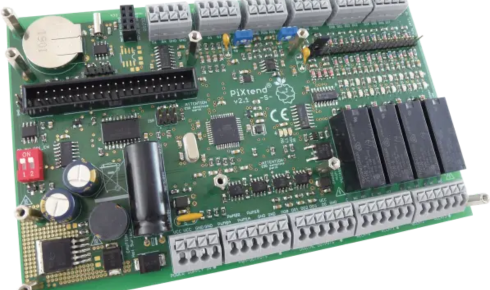The world of healthcare and smart technology is advancing at an unprecedented pace. From wearable medical sensors to connected industrial systems, the demand for reliable and compact connectivity is growing rapidly. At the core of these innovations are PCB connectors, which enable efficient electrical and data communication within increasingly smaller devices. As the Internet of Things (IoT) continues to redefine both medical and industrial applications, PCB connectors are becoming essential to achieving speed, accuracy, and miniaturisation.
PCB connectors and their expanding role
PCB connectors form the backbone of modern electronic design. They provide stable electrical pathways between circuit boards, ensuring that data and power flow smoothly within complex systems. As devices become more advanced, these connectors are designed to maintain performance under higher speeds and in tighter spaces.
In medical and IoT devices, every millimetre counts. PCB connectors make it possible to assemble compact layouts without compromising function. They help link processors, sensors, and displays in a way that supports real-time communication and reliable operation. From patient monitors to smart meters, these connectors deliver performance that is both precise and consistent.
Enabling high-speed data and precision
IoT-enabled medical devices rely on the ability to process and transmit large volumes of data instantly. A wearable heart monitor, for instance, must continuously send readings to healthcare professionals without delay or loss of signal. PCB connectors support these needs by ensuring high-speed data transfer with minimal interference or resistance.
In diagnostic equipment such as MRI and CT scanners, accurate data transmission determines the clarity and reliability of results. The advanced design of PCB connectors helps prevent noise and distortion, preserving the integrity of vital information. Their consistent performance allows healthcare systems to depend on them for critical and time-sensitive operations.
Driving miniaturisation in smart devices
Miniaturisation is a defining trend across medical and IoT technologies. Devices are shrinking in size while becoming more powerful and feature-rich. PCB connectors enable this by allowing multiple functions to coexist in a small space. Their compact structure helps engineers reduce overall size while maintaining high connection density.
In healthcare, miniaturised PCB connectors are used in portable diagnostic devices, implantable sensors, and digital hearing aids. For industrial IoT systems, they enable smaller yet more capable control modules and sensor units. The result is smarter, more efficient devices that can be deployed anywhere without sacrificing reliability.
Enhancing sensor connection and integration
Sensors are central to both IoT and medical technology. They detect, measure, and communicate real-time information that drives automation and decision-making. For sensors to perform accurately, they require dependable interfaces. PCB connectors ensure a stable sensor connection by maintaining electrical continuity and shielding signals from interference.
In applications such as patient tracking, asset monitoring, or factory automation, this precision allows for better analytics and faster responses. The reliability of these connections also supports predictive maintenance and diagnostics, which are essential in both healthcare and industry.
Working alongside industrial connectors
In large-scale systems, industrial connectors and PCB connectors often work together. Industrial connectors manage high power requirements and environmental exposure, while PCB connectors handle data and control signals within the device. This integration ensures overall system efficiency and safety, especially in connected medical facilities or industrial IoT networks.
Manufacturers like Allied Connectors are at the forefront of developing high-performance connectivity solutions for medical and IoT applications. Their expertise in PCB connectors, sensor connection systems, and industrial connectors supports the growing need for compact, durable, and high-speed designs. Through engineering innovation and quality assurance, Allied Connectors continues to contribute to the development of the next generation of smart and connected devices.
The evolution of PCB connectors reflects the broader transformation of modern technology. As IoT-driven healthcare and industrial systems demand greater speed, precision, and miniaturisation, these connectors have become vital to reliable performance.

